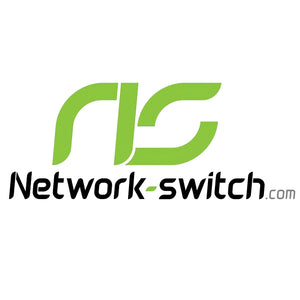Introduction – The Post-Upgrade VLAN Failure
If you recently upgraded your Cisco Catalyst 9300 or 9400 switch to Cisco IOS XE 17.9.6, only to discover that your IoT or 802.1X-authenticated devices can no longer obtain IP addresses or communicate on their VLANs, you are not alone.
This is not a configuration error - it is a confirmed software defect in IOS XE 17.9.6, documented by Cisco under bug ID CSCwm57734.
The issue primarily affects networks using 802.1X authentication and dynamic VLAN assignments, particularly in IoT environments that rely on Network Access Control (NAC).
This guide explains the root cause, how to verify if you’re affected, and the exact steps to fix or work around the problem.
Root Cause – The IOS XE 17.9.6 Bug (CSCwm57734)
Cisco officially identified and withdrew IOS XE 17.9.6 (Cupertino-17.9.6) in late 2024 due to a bug that disrupts dot1x (Dynamic VLAN) and DHCP traffic flow.
Symptoms of CSCwm57734:
- No DHCP addresses issued: Devices fail to obtain IP addresses even after successful 802.1X authentication.
- No traffic forwarding: Even with manually assigned static IPs, interfaces show zero input packets.
-
Authentication appears successful:
show authentication sessions lists clients as Authorized with VLAN assigned. -
MAC-address table anomaly:
show mac address-table displays the client’s MAC as STATIC instead of dynamic. - Impact scope: Affects 802.1X and VLAN override; MAB (MAC Authentication Bypass) clients usually remain functional.
Why It Happens:
The IOS XE 17.9.6 process incorrectly handles DHCP frames on authenticated 802.1X ports. Packets are silently dropped before reaching the VLAN forwarding engine, causing clients to authenticate but fail network access.
Affected Features and Systems
| Feature or Mode | Affected | Status / Notes |
| 802.1X (dot1x) Closed Auth | ✅ | DHCP and VLAN assignment fail |
| VLAN Override (NAC) | ✅ | Dynamic VLANs not functional |
| MAB (MAC Authentication Bypass) | ⚠️ Partial | Mostly stable |
| Static VLAN Assignments | ❌ | Not affected |
| Guest VLAN | ⚠️ | May fail to transition properly |
| Wired IoT Devices (DHCP) | ✅ | Commonly impacted |
Cisco confirmed the issue across Catalyst 9300, 9400, and 9500 models running 17.9.6 in install mode.
How to Fix – Upgrade to a Safe Version
Cisco withdrew 17.9.6 and released IOS XE 17.9.6a with the official fix.
If you rely on NAC, IoT VLANs, or dynamic authentication, upgrading to 17.9.6a or a later stable release (17.12.x recommended) is essential.
Recommended Versions
| Train | Fixed Release | Status |
| 17.9.x | 17.9.6a | Fixed (Oct 4 2024) |
| 17.12.x | 17.12.3 | Long-term stable |
| 17.6.x | 17.6.6 | Maintenance (legacy hardware) |
Step-by-Step: Upgrade Procedure (Install Mode)
Step 1 – Preparation:
- Connect via console (9600 baud, 8N1, no flow control).
- Download the fixed image (e.g. cat9k_iosxe.17.09.06a.SPA.bin) from Cisco.com.

Step 2 – Clean Up Old Files:

Step 3 – Copy the New Image:

Step 4 – Verify Integrity (Optional but Recommended):

Step 5 – Set Boot Variable:

Step 6 – Install and Activate:

Step 7 – Verify After Reload:

All IoT and 802.1X devices should now obtain IP addresses normally.
Alternative Solutions – Downgrade or Temporary Workarounds
If immediate upgrade isn’t possible:
Option A – Downgrade
Revert to IOS XE 17.9.5, which is confirmed stable.
Follow the same install add activate commit process using the older .bin image.
Option B – Temporary Workarounds (Use with Caution)
- Disable 802.1X on affected interfaces
- Switch to Low-Impact or Open Mode:Clients can receive DHCP leases without full dot1x enforcement. Not recommended for production; only use during maintenance windows.
- Clients can receive DHCP leases without full dot1x enforcement.
- Not recommended for production; only use during maintenance windows.

Warning: These workarounds lower NAC enforcement and should be reverted once a stable image is deployed.
Validating the Fix
| Check | Command | Expected Result |
| IOS XE Version | show version | Displays 17.9.6a or newer |
| Auth Sessions | show authentication sessions | Clients Authorized and active |
| Interface Stats | show interfaces status | Input/output counters incrementing |
| MAC Table | show mac address-table dynamic | MAC entries listed as Dynamic |
| DHCP Function | Test client | Client obtains valid IP address |
If all checks succeed, the VLAN and IoT connectivity issues are resolved.
Recommended Stable IOS XE Versions
| Model | Recommended Train | Target Version | Release Date |
| Catalyst 9300 | 17.12.x (Latest LTS) | 17.12.3 | Dec 2024 |
| Catalyst 9400 | 17.12.x | 17.12.3 | Dec 2024 |
| Catalyst 9500 | 17.9.x (Stable) | 17.9.6a | Oct 2024 |
These versions incorporate bug fixes for DHCP, NAC, and VLAN operations.
Lessons from the 17.9.6 Incident
This incident demonstrates that even maintenance releases can introduce critical regressions.
Before upgrading:
- Review Release Notes and the Cisco Bug Search Tool (BST) for open caveats.
- Test upgrades in a pilot environment with non-critical switches.
- Validate NAC, DHCP, and VLAN behavior before production rollout.
- Backup configs and images before any firmware change.
- Subscribe to Cisco Field Notices to stay informed of withdrawn releases.
The 17.9.6 bug underscores the need for version qualification and phased deployment strategies in enterprise networks.
Validate, Test, and Upgrade Wisely
The Cisco IOS XE 17.9.6 issue (CSCwm57734) caused widespread disruptions for organizations using 802.1X and IoT VLANs.
Cisco has addressed the problem in 17.9.6a and newer releases.
Key takeaways:
- Upgrade immediately to 17.9.6a or 17.12.x.
- Avoid running withdrawn or unverified maintenance images.
- Always test in controlled environments before full deployment.
A disciplined firmware-management process ensures that stability, not surprise, defines your next network upgrade.
Did this article help you or not? Tell us on Facebook and LinkedIn . We’d love to hear from you!






 https://network-switch.com/pages/about-us
https://network-switch.com/pages/about-us





